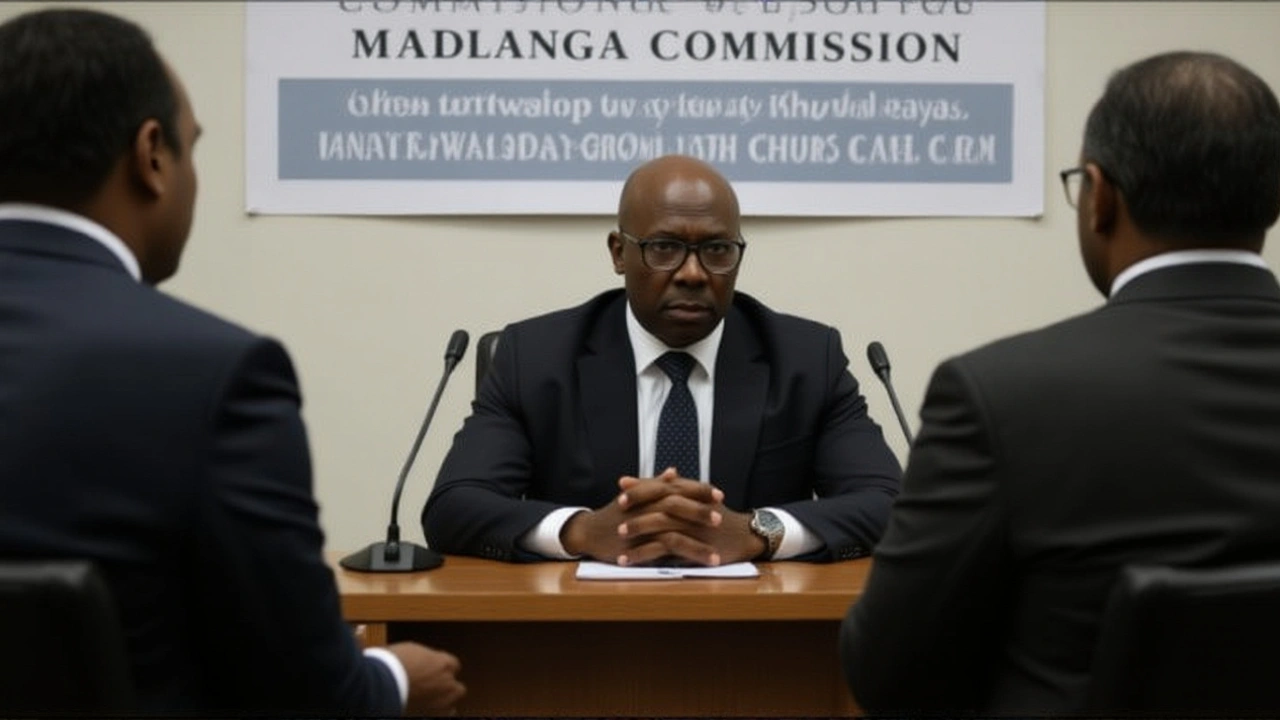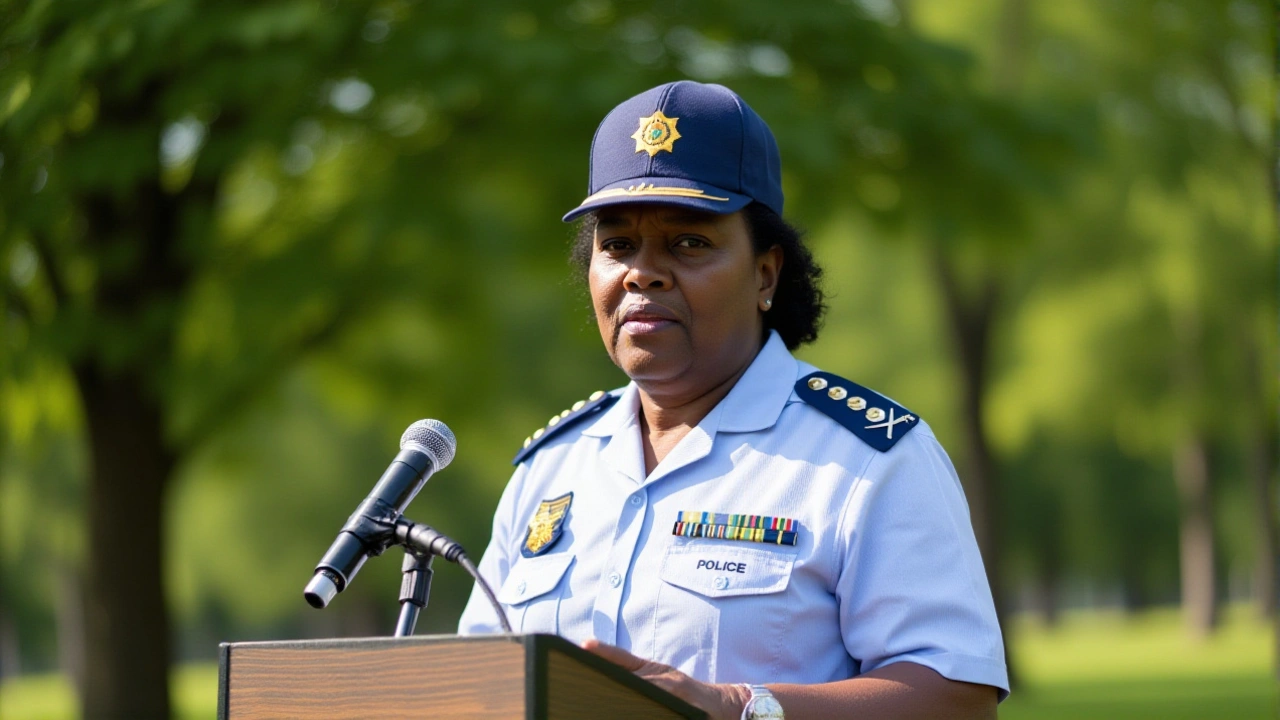When Fannie Masemola, National Police Commissioner of South African Police Service took the stand at the Madlanga CommissionBrigitte Mabandla Justice College, Pretoria, the nation watched as the inquiry into alleged political interference and corruption unfolded. The hearings, held from September 22 to 24, 2025, were open to the public via livestream on the commission’s website and were covered by radio, television and social media.
Background to the Madlanga Commission
The Judicial Commission of Inquiry into Criminality, Political Interference and Corruption in the Criminal Justice System – colloquially known as the Madlanga Commission – was launched by President Cyril Ramaphosa in August 2025 after a spate of high‑profile scandals involving the police, the judiciary and provincial task forces. Its mandate is to investigate claims that political actors have meddled in investigations, that contract awards have been rigged, and that senior police officials have been shielded from accountability.
Commission spokesperson Jeremy Michaels reminded potential visitors that anyone attending must carry a valid ID and that weapons are strictly prohibited inside the justice college.
Masemola’s Testimony: Key Themes
Chief evidence leader Terry Motau began questioning Masemola on Monday, September 22, but halfway through the session Motau stepped down. Matthew Chaskalson then assumed the role, steering the inquiry toward three main strands: the Provincial KZN Task Team (PKTT), alleged political interference, and internal frictions within senior police ranks.
- Allegations that Minister Mchunu tried to disband the PKTT to protect criminal networks.
- Claims by KZN violence monitor Mary de Haas of unlawful arrests, torture and vanished case files.
- Dispute with Deputy Police Commissioner Shadrack Sibiya over the direction of crime‑intelligence operations.
Provincial KZN Task Team and the 2017 Magaqa Murder
Masemola recounted the PKTT’s mandate to investigate the killing of ANC councillor Sindiso Magaqa, who was shot dead in 2017. He maintained that the task team had followed all procedural safeguards, despite criticism that the investigation stalled after a 2020 directive from the Office of the Minister of Police.
When pressed about a statement describing a “irrational and inexplicable encroachment into operational issues” by Minister Mchunu, Masemola replied, “I did hold that view from the beginning when this directive was issued, Commissioner, but of course that is General Masemola’s view.” The quote underscored the commissioner’s frustration with perceived political meddling.
Allegations of Political Interference
The commissioner highlighted a January 2025 mediation meeting, chaired by Minister Mchunu, intended to defuse tension between him and Deputy Commissioner Shadrack Sibiya. Masemola described the session as “political interference” that sought to undermine his authority over the PKTT.
He also referenced a ministerial gathering on March 6, 2025, in Cape Town – held in the provincial commissioner’s boardroom – where the disestablishment of the PKTT was allegedly discussed. According to Masemola, the meeting concluded with vague instructions asking for a report on the “status of the disestablishment,” a directive he refused to execute without clearer guidance.
Dispute with Deputy Commissioner Shadrack Sibiya
The tension between Masemola and Sibiya traces back to a controversial intelligence brief in November 2024 that implicated senior politicians in a drug‑trafficking ring. Sibiya, who oversees crime‑intelligence, reportedly pushed for an internal review that Masemola deemed politically motivated.
During testimony, Masemola emphasized that the deputy’s actions “border on a breach of operational independence,” a charge that could have ramifications for the chain of command within the South African Police Service.
Reactions from Officials and Civil Society
KwaZulu‑Natal Police Commissioner Lieutenant General Nhlanhla Mkhwanazi had testified the week before, accusing the minister of close ties to businessman Brown Makozi – an allegation Minister Mchunu denied.
Human‑rights groups, led by the Centre for Constitutional Rights, welcomed Masemola’s candor but warned that the commission must move beyond “talk‑shop” to actionable reforms. “If the PKTT is to be reconstituted, it must be insulated from political patronage,” a spokesperson said.
Meanwhile, the police union expressed concern that public airing of internal disputes could erode confidence in the force, urging the commission to focus on systemic corruption rather than personal grievances.
Potential Impact on South Africa’s Criminal Justice System
Analysts say the Madlanga Commission could serve as a litmus test for the ruling African National Congress’s willingness to tackle entrenched corruption. A successful overhaul of the PKTT and the suspension of any officials found complicit could restore some public trust.
However, critics caution that without legislative backing – such as empowering an independent oversight body – the commission’s recommendations may languish.
What Comes Next?
The commission will continue its hearings through October, inviting written submissions from NGOs, academics and private citizens. A final report is expected by March 2026, after which Parliament’s Ad Hoc Committee will decide on possible prosecutions or policy reforms.
For now, Masemola remains under pressure to balance his duties as police chief with the political realities of a fragmented government. Whether his testimony translates into concrete change, or simply adds another chapter to South Africa’s long‑running struggle against police politicisation, remains to be seen.

Frequently Asked Questions
What is the main purpose of the Madlanga Commission?
The commission was set up to investigate claims of criminality, political interference and corruption within South Africa’s criminal justice system, focusing on police operations, contract awards and alleged shielding of senior officials.
How did Deputy Commissioner Shadrack Sibiya respond to the allegations?
Sibiya has not made a public statement since the hearings, but sources close to the police say he intends to file a formal rebuttal, arguing that the commission’s questions mischaracterise routine intelligence decisions.
Can the public still submit evidence to the commission?
Yes. The commission’s website lists a portal where individuals and organisations can upload written submissions until the end of October 2025. Submissions must be factual and can include documentary evidence.
What are the possible outcomes if the commission finds political interference?
Findings could trigger parliamentary motions to amend the Police Act, the removal or suspension of implicated officials, and potentially criminal prosecutions if evidence meets legal thresholds.
How does this inquiry relate to past corruption scandals?
The Madlanga Commission follows earlier probes such as the 2022 State Capture Commission, but it zeroes in on the police’s role and the provincial task forces that have been accused of shielding illicit networks.


Author
Ra'eesa Moosa
I am a journalist with a keen interest in covering the intricate details of daily events across Africa. My work focuses on delivering accurate and insightful news reports. Each day, I strive to bring light to the stories that shape our continent's narrative. My passion for digging deeper into issues helps in crafting stories that not only inform but also provoke thought.